Lecturers
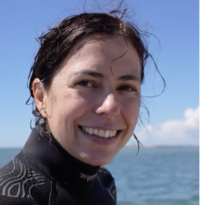
Blue carbon in seagrass
By Carmen Barrena de los Santos (Centro de Ciências do Mar do Algarve -- Portugal)
Research Field Keywords :
Coastal Ecology, Seagrass, Saltmarsh, Blue Carbon, Functional Ecology, Ecosystem Services
Carmen is a Research Assistant at the Centre of Marine Sciences in Faro, Portugal. She has over 15 years of research experience in the ecology of coastal vegetated habitats, specially seagrasses, with a focus on ecosystem service provision, responses to environmental stress, trait-based ecology, as well as assessing trends of change over time. She is presently working on assessing the blue carbon stocks in wetlands of Portugal. Her research purpose and motivation are to advance in the ecological knowledge of coastal vegetated habitats to support science-based management, promote their conservation, and inform national and international environmental policies. She is also committed to student supervision and teaching in higher education, as well as in the engagement, through outreach activities, of citizens and other stakeholders in the protection and sustainable use of coastal ecosystems.
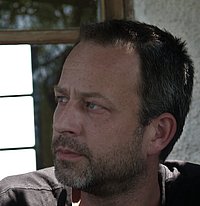
Carbon sequestration in vegetated coastal ecosystems
By Steven Bouillon (KU Leuven, Departement of Earth & Environmental Sciences -- Belgium)
Research Field Keywords :
Biogeochemistry, stable isotopes, carbon cycling, mangroves, rivers, lakes, floodplains, foodwebs
Steven Bouillon is a professor at the Department of Earth & Environmental Sciences at KU Leuven (Belgium) and has been conducting research on the biogeochemistry of tropical aquatic ecosystems over the past 20 years, ranging from coastal ecosystems (mangroves, seagrass beds, estuaries), to inland waters (mainly African lakes and river basins). Stable isotope techniques form a vital part of the methodology in most research projects. The research topics include studying current and past fluxes and cycling of elements in aquatic systems (carbon, nutrients, greenhouse gas exchange), ecosystem functioning (including foodweb studies), and studies addressing how anthropogenic changes (nutrient inputs, land-use change, ..) affect the functioning of tropical aquatic ecosystems.
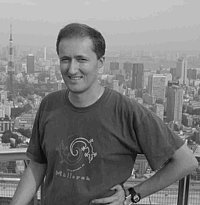
Gas hydrates and the development of sustainable applications for CO2 capture, water desalination etc
By Bertrand CHAZALLON (Laboratory of Physics of Lasers, Atoms and Molecules -- France)
Research Field Keywords :
gas clathrate hydrates, nucleation, ice particles
B. Chazallon obtained a PhD in physics (cotutelle) at the University of Lyon and the University of Göttingen (Germany) in 1999. He joined the CEMHTI (former CRMHT) CNRS-Orléans as a post-doc in France (1999-2000) to develop time-resolved Raman spectroscopy applied to the characterization of high-temperature materials.He was then recruited as a researcher and associate teacher (2000-2001) at the Laboratoire de Glaciologie (now IGE) (Univ. Grenoble, France) to work on the analysis of gases trapped in Antarctic ice for past climate analysis. In 2001, he joined the PhLAM of the University of Lille (physics department) as an associate professor. He received the "Habilitation à diriger les Recherches" (HDR) on the 'Study of heterogeneous processes of environmental interest: incorporation of gases in ice or in water in the form of hydrates' in 2009. Since 2012, he is a full professor at PhLAM and develops research on gas hydrates (CO2 capture, desalination), ice particles in atmosphere, etc.
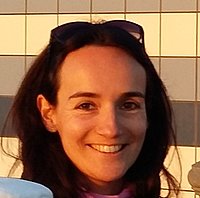
Give more value to fish byproducts thanks to enzymatic hydrolysis process
By Mathilde Coquelle (Procidys Society -- France)
Research Field Keywords :
Process development for food byproducts: enzymatic hydrolysis, extraction, purification, drying
Project manager at Procidys since 2015. Realization of studies for marine and agri-food co-products processing: bibliography, market analysis, development of new products and processes at lab and pilot scales, cost evaluation: investment and return on investment, industrialization,business plan, training.
2005/2015: project manager at AQUIMER, the french national cluster of seafood and aquaculture industry. In touch with companies, scientists and institutions to build up R&D programs, get the grants, coordinate projects and develop international cooperation in
- Fisheries: energy saving, resource management and valuation
- Aquaculture : new feed and production technologies
- Marketing : New products and ingredients development, functionality tests
- Sanitary risk management and new methods of analysis
Graduaded from food Engineer diploma (master-level) of ISA (Junia), a University College of Agricultural, Food and Environmental Sciences at Lille, France.

Rhodolith beds as blue carbon repositories – “sequestration”, burial and long-term storage
By Nick Kamenos (Umeå Marine Sciences Centre, Department of Ecology and Environmental Sciences, Umeå University -- Sweden)
Research Field Keywords :
Nick Kamenos is Professor of Marine Ecosystem Science in the Department of Ecology and Environmental Sciences along with being Director of the Umeå Marine Sciences Centre both at the Umeå University in Sweden. Umeå University is a research-intensive University with most recent accolades including Prof. Emmanuelle Charpentier being awarded the 2020 Nobel Prize in Chemistry for the discovery of the CRISPR-Cas9 genetic scissors.
Prof. Kamenos’ research group (the Marine Global Change Group) asks questions about how the oceans are altered by the synergy between natural and anthropogenic change while trying to better determine the actual extent of marine global change. His group investigate the relationships between global change (e.g. climate variability, ocean acidification & multiple stressors), ecosystem engineers (e.g. macroalgae, coralline algae, corals and seagrass) and evolution (e.g. Science 2020: 369, 1351-1354, Nature Ecology & Evolution 2021: 5, 1546–1556) along with the services they provide (Global Change Biology: 2020: 26, 2496-2504). In particular, recent research focuses on understanding the role of benthic ecosystems in sequestering and burying carbon as a nature-based solution to climate change. Prof. Kamenos’ research is strongly multidisciplinary, currently thinking about the land-sea continuum in the context of shallow water marine ecosystems (e.g. coral reefs).
When not in the water or looking after his two toddlers, Nick tries to ski or cycle as much as possible.
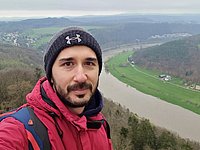
Seawater pCO2 from Ships-of-Opportunity: challenges, opportunities, importance
By Vlad Macovei (Helmholtz Zentrum Hereon -- Germany)
Research Field Keywords :
Marine biogeochemistry, observations, autonomous instruments, seawater pCO2, sea-air carbon flux
After my Environmental Geoscience BSc from the University of Edinburgh, I moved on to obtain a PhD in Marine Biogeochemistry at the National Oceanography Centre and the University of Southampton. The beginning of my research career was focused on the nutrient and carbon biogeochemistry of the North Atlantic Ocean. Recently, after my move for a postdoc at the Helmholtz-Zentrum Hereon in Germany, I have focused more on the North Sea area. At Hereon, I am part of the Coastal Productivity Department, where we manage the FerryBox observations from our various ship and fixed-point observations. Our newest project is SEA-ReCap, a research capacity building project, where the scientific goals are to better understand the contrasting coastal North Sea and Black Sea. My research interests are seawater carbon uptake capacity, the long-term evolution and variability of the ocean carbon sink and marine resilience to climate change.
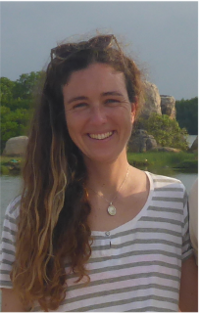
Blue carbon in coastal vegetated habitats
By Inés Mazarrasa (IHCantabria, Environmental Hydraulics Institute of the University of Cantabria -- Spain)
Research Field Keywords :
Coastal ecology, Seagrass, Saltmarshes, Blue Carbon, Nature Based Solutions
Inés is a postdoctoral researcher at the Environmental Hydraulics Institute of the University of Cantabria (IHCantabria, Spain) with more than 13 years experience in the study of the role coastal vegetated ecosystems play as natural carbon sinks. She is particularly interested in the impact that human activities (e.g. land use change, pollution) have in these ecosystems and the associated carbon sinks and how conservation and restoration projects can contribute to climate change mitigation and adaptation while enhancing all other ecosystem services. Her research has focused in seagrass meadows and saltmarshes (and more recently in seaweed communities) from different countries (e.g. Costa Rica, Australia, Spain) and environments (e.g. coastal, estuarine). She is highly committed to the transfer of scientific knowledge to practitioners and policy makers, students supervision and teaching and stakeholders engagement through outreach and dissemination activities.
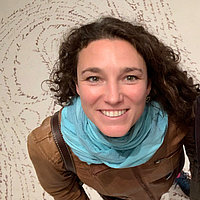
The open ocean biological carbon pump
By Griet Neukermans (Ghent University -- Belgium)
Research Field Keywords :
Ocean colour remote sensing, biological carbon pump, carbonate pump, marine robotics, optical sensor
Prof. Dr. Griet Neukermans is head of the Marine Optics and Remote Sensing (MarSens) Research Group within the Biology Department of UGent since 2020. Her research is situated at the interface of optical and biogeochemical oceanography. She obtained a PhD in remote sensing and marine optics from the Université du Littoral - Côte d’Opale (FR) in 2012, was a postdoctoral fellow at Scripps Institution of Oceanography (USA), held a Banting postdoctoral fellowship at Laval University (CAN), a Marie Sklodowska-Curie fellowship at Sorbonne Université (FR), and currently holds a European Research Council (ERC) grant for observational research of the Biological Carbon Pump. MarSens' interests encompass optical modeling and measurements of marine particles, laboratory and ship-based work, optical sensor development, and observations from marine robotics and satellite platforms in coastal and open ocean environments.
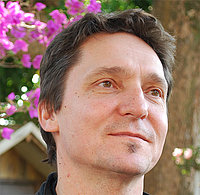
Carbon balance in the deep ocean: a view of the South Atlantic and the carbon delivery by canyons
By Christophe Rabouille (Laboratoire des Sciences du Climat et de l'Environnement -- France)
Research Field Keywords :
Aquatic biogeochemistry, early diagenesis of sediments, river-sea interface, Coastal sea
C. Rabouille has been a member of the French oceanographic community for 30 years. His main scientific interests are the recycling of organic matter and nutrients in marine and continental sediments, the biogeochemical dynamics of sediments and the control of oxygen in marine waters. From 1991, he has been active in large-scale research project in marine biogeochemistry at the national level (JGOFS-France: Euméli, Dyfamed, Antarès) as well as at the European level (BENGAL, ADEPD, HERMES…). In 2000, C. Rabouille started to focus on land-ocean interactions. He coordinated several multi-PIs national and European project (EU-COBO, ANR-CHACCRA, Fr-Mermex, DeltaRhone, RiOMar) on this particular topic and focused on the extreme events (floods and storms). From 2010-2017, a large research project (Congolobe) was devoted to the connection of the Atlantic with the Congo canyon.
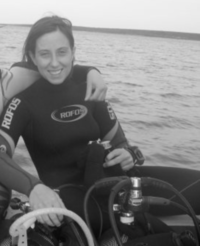
Biomineralization in marine environments
By Federica Ragazzola (Stazione Zoologica Anton Dohrn -- Italy)
Research Field Keywords :
Skeletal geochemistry, structural integrity, Biomineralization processes, carbon sequestration
My main research interests lie in the plastic and adaptive responses to climate change by both calcifying and non-calcifying algal species living at the margins of their distribution.
In calcifying algae in particular, I study how during the biomineralisation process the distribution of magnesium and trace elements are modified by climate change (Ocean Acidification and global warming) and how this in turn affects the structural integrity of the thallus.
The main research activities are conducted through experimental ecological studies, conducted in the field and in a controlled environment (mesocosms).
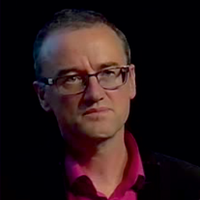
Impacts of climate change on marine biodiversity and consequences for the blue transformation
By Grégory Beaugrand (CNRS - Laboratory of Oceanology and Geosciences -- France)
Research Field Keywords :
Climate change, marine biodiversity, fisheries, blue transformation, sustainable development
Gregory Beaugrand is a research scientist at the Centre National de la Recherche Scientifique (CNRS), currently
based in Wimereux, France. His research is about the impact of Global Change on the biodiversity, structure and
functioning of marine ecosystems. His research has provided evidence that past, contemporaneous and future climate
change have a strong influence on biodiversity, ecosystem functioning and both provisioning and regulating services.
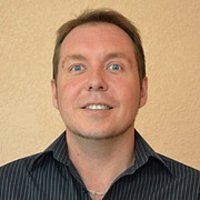
Measuring sediment-water exchanges of Carbon in coastal areas
By Lionel Denis (University of Lille - Laboratory of Oceanology and Geosciences -- France)
Research Field Keywords :
Biogeochemistry, Microphytobenthos, Sediment-water exchanges, sediment-air exchanges, Microsensors
After being the head of research teams from 2003 to 2013, Pr. Lionel DENIS endorsed the head of the Station Marine de Wimereux (University of Lille) from 2014 to 2023. As a biogeochemist, member at large of the IASWS (International Association for Sediment Water Science), member of the LOG (Laboratory of Oceanology and Geosciences), in the research group INTEREST (Intertidal and Estuarine Ecology), his skills are focused on exchanges at the sediment-water interface and at the sediment-air interface, mainly in intertidal and coastal systems. His works describe exchanges of dissolved compounds (oxygen, nutrients, Dissolved Inorganic Carbon), as well as gaseous (Carbon Dioxide, methane) or particulate (organic, inorganic) exchanges. The interactions with benthic macro-meio or microorganisms are considered, as well as the influence of ongoing changes and stressors (contaminants…) on the biodiversity and the functioning of the various ecosystems studied.
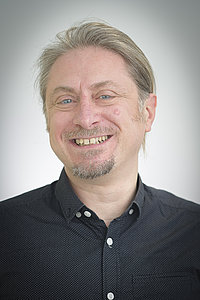
The interplay between marine food webs and carbon sequestration
By Sébastien Lefebvre (University of Lille - Laboratory of Oceanology and Geosciences -- France)
Research Field Keywords :
Marine ecology, trophic interactions, carbon and nitrogen stable isotopes, modeling
Professor Sébastien Lefebvre is a marine ecologist, member of the laboratory of oceanology and geosciences (LOG Wimereux, France) in the research group INTEREST (Intertidal and Estuarine Ecology), and director of research federation « Campus de la mer » (ULCO, U-Lille, U Artois, Ifremer, ANSES). His research focuses on the structure and dynamics of food webs in marine exploited ecosystems (Aquaculture, fisheries) in relation to environmental gradients. He addresses these issues using carbon and nitrogen stable isotopes and dynamic modelling (such as dynamic energy budget theory).
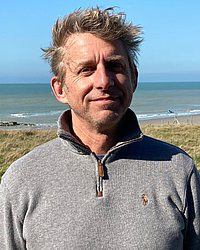
Satellites as pertinent sentinels for the monitoring of aquatic carbon at global scale.
By Hubert Loisel (University of Littotal Opale Coast - Laboratory of Oceanology and Geosciences -- France)
Research Field Keywords :
Ocean color remote sensing, carbon cycle at global scale, marine optics
Hubert Loisel obtained his PhD at the University of Paris 6 in 1999 in marine optics and radiative transfer in the ocean. After few years in the US he became Assistant Professor and then Professor at ULCO in 2007 and makes his researches at the Laboratory of Oceanography and Geosciences that he is leading since 2020. He is strongly involved into national and international expertise groups of space agencies (CNES, ESA, EUMETSAT, NASA) in the frame of studies related to satellite remote sensing of ocean carbon. He is especially active in the development of inverse methods to assess optical and biogeochemical parameters from satellites observations. He recently spent four years in Vietnam at the Vietnam Academy of Science and Technology to foster the use of ocean color observations for the monitoring of the evolution of coastal waters in relation with natural and anthropogenic forcing. He is now leading two research projects on marine carbon cycle at global scale.
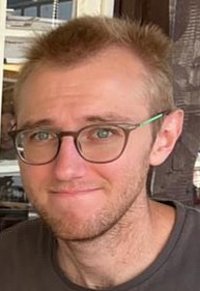
Blue carbon and plankton in the context of climate change
By Loick Kleparski (Laboratory of Oceanology and Geosciences -- France)
Research Field Keywords :
Plankton, climate variability, biodiversity, biogeography, ecological niche, modelling
I am a postdoctoral researcher in the Laboratory of Oceanology and Geosciences in Wimereux, France. My research interests focus on how climate variability influences the spatio-temporal distribution of planktonic organisms and how it might affect marine ecosystems functioning and services. More precisely, I use large scale observations of plankton abundance and environmental conditions (such as temperature and nutrients concentrations), to investigate how different species with different life strategies respond to the past and present variability, in order to project their future responses in the context of climate change and under different warming scenarios.
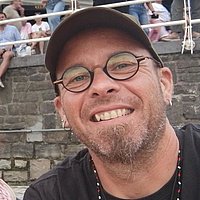
Air-sediment CO2 exchanges measurements on benthic communities from soft and rocky shores
By Nicolas Spilmont (University of Lille - Laboratory of Oceanology and Geosciences -- France)
Research Field Keywords :
Benthic ecology, intertidal ecology, air-sediment fluxes, CO2 budgets
Prof. Nicolas Spilmont is a benthic ecologist, deputy director of the Laboratory of Oceanography and Geosciences (LOG, Wimereux, France). He contributed in 2002 to the development of a new method to measure CO2 fluxes at the air-sediment interface in benthic chambers. Ever since, he has been working on the benthic metabolism during emersion periods, both on soft (sandy beaches and estuaries) and rocky (macroalgal communities) intertidal sediments. His current research mainly focuses on rocky shores with, beside CO2 fluxes, emphasis on introduced species, the behaviour of invertebrates (mollusks and crustaceans) and the impact of microplastics.
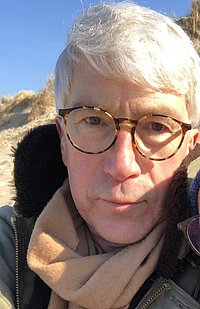
Preservation and accumulation of sedimentary organic matter: the first stages of organic diagenesis and induced authigenesis
By Nicolas TRIBOVILLARD (University of Lille - Laboratory of Oceanology and Geosciences -- France)
Research Field Keywords :
geology, sedimentology, geochemistry, diagenesis, authigenesis, organic matter, trace metal elements
NT is a senior sedimentologist specialized in marine sediments and sedimentary rocks where organic matter played a role in the control of diagenesis. The basic tools are sediment characterization and geochemistry: major and trace elements, Rare Earth Elements, carbon and oxygen stable isotopes, paleoredox and paleoproductivity reconstructions. The researched evolved from petroleum source rock deposition to authigenesis and diagenesis of sediments.
orcid.org/0000-0003-3493-5579